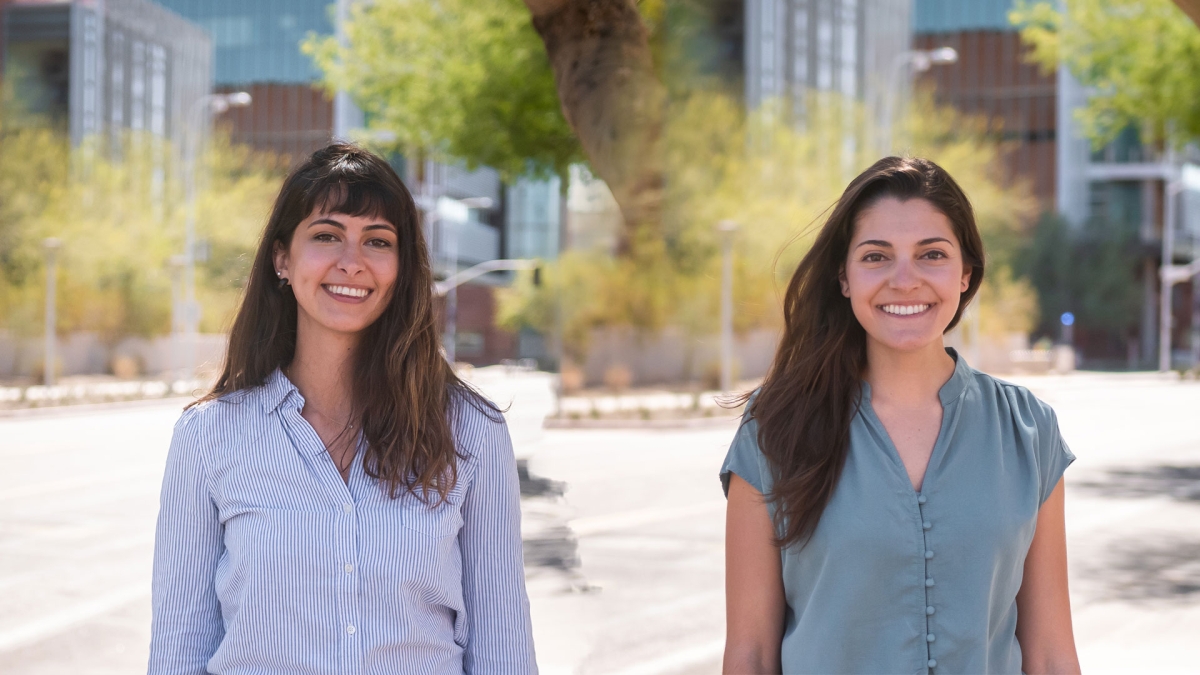Dealing with 'COVID-somnia': ASU clinic launches new sleep group

Mickie Gusman and Emma Lecarie from the ASU Clinical Psychology Center are launching a new Sleep Therapy Group designed to help people improve their sleep habits and understand why they may be having poor sleep.
Sleep has only gotten worse for many people as a result of the COVID-19 pandemic, and sleep neurologists have dubbed this reduction in quality sleep “COVID-somnia.”
Arizona State University's Clinical Psychology Center is launching a new Sleep Therapy Group designed to help people improve their sleep habits and understand why they may be having poor sleep. This group will be facilitated by ASU clinical psychology doctoral students and therapists Emma Lecarie and Mickie Gusman starting March 24.
Over 35% of the adults in the United States get less than the amount of sleep recommended by the Centers for Disease Control's guidelines. Additionally, approximately 70 million people in the United States deal with some level of sleep disorder every year, including sleep apnea, insomnia and narcolepsy. On top of that, 70% of college students report getting insufficient sleep.
“The good news is that sleep is a fairly malleable process and by learning skills and practicing better sleep hygiene, many people can improve their sleep quickly,” said Lecarie, a third-year clinical psychology graduate student and resident therapist in the ASU Clinical Psychology Center.
“We are launching this new six-week sleep group to help teach our community — both inside and outside of ASU — how to improve their sleep habits, manage issues they may be having surrounding sleep and ultimately help reduce anxiety or stress related to sleep.”
Poor sleep or insufficient sleep is linked very closely with increased stress, irritability, reduced attention, poorer grades, worse memory, increases in weight gain, along with an increased risk of getting sick from a weakened immune system.
“While having poor sleep once in a while isn’t an issue, consistently having issues with sleep can be detrimental to a number of important long-term problems, such as depression, emotion regulation, hypertension or even obesity,” Gusman said.
The new group is a teletherapy group delivered through Zoom and is designed to teach skills that are specific to issues that clients are experiencing such as health behaviors like drinking coffee too close to bedtime, not designating a space for rest or even using devices too close to sleep.
The group uses the cognitive behavioral therapy model for insomnia strategies and teaches “experiments” that group members can practice on their own and document in a sleep journal. These practice sessions are backed by research studies demonstrated to have been effective in reducing sleep problems.
“This is a once-per-week group where we talk about the importance of sleep, the mechanisms of sleep, the physiology of sleep and ways to improve someone’s sleep,” said Gusman, a second-year clinical psychology graduate student.
While sleep guidelines generally recommend eight hours of sleep for adults, Gusman and Lecarie want to reinforce that sleep requirements vary per person.
“Sleep issues are super common, and there are a lot of misconceptions about sleep — it really is dependent on the person and how much sleep they need in order to feel refreshed for the next day. A big part of our group is to help people to understand exactly what they personally need,” Lecarie said.
To sign up for the new sleep therapy group, students and community members need to call the Clinical Psychology Center at 480-965-7296. The six week program is available on a weekly basis or clients can sign up for the entire program at a discounted rate. Sessions will take place from 4:30—5:30 p.m. every Thursday, starting March 25 until April 29.
More Science and technology

What does a spacecraft, a skeleton and an asteroid have in common? This ASU professor
NASA’s Lucy spacecraft will probe an asteroid as it flys by it on Sunday — one with a connection to the mission name.The asteroid…

Hack like you 'meme' it
What do pepperoni pizza, cat memes and an online dojo have in common?It turns out, these are all essential elements of a great…

ASU professor breeds new tomato variety, the 'Desert Dew'
In an era defined by climate volatility and resource scarcity, researchers are developing crops that can survive — and thrive —…

